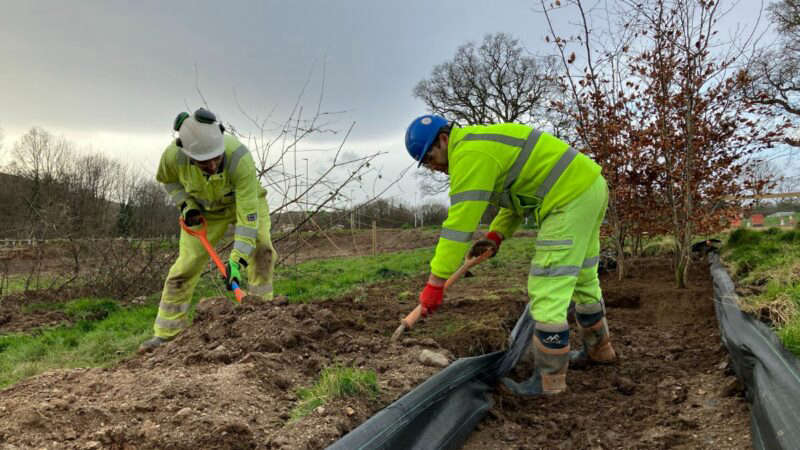
Around 2,000 trees have been relocated as part of Devon County Council’s pioneering efforts to make the A382 link road development near Newton Abbot the UK’s first “carbon negative” highway.
A field near the road has been transformed into a temporary nursery to house the trees ahead of the start of construction work.
The A382 improvement scheme is one of seven projects receiving a share of £30 million through the Live Labs 2 programme, funded by the DfT (Department for Transport) and organised by ADEPT (Association of Directors of Environment, Economy, Planning & Transport), to decarbonise the construction and maintenance of the road.
For the next couple of years, the makeshift tree nursery will be home to a number of different native species, including yew, beech and hawthorn. The site has everything the trees need as it also includes an irrigation pond to store water for the drier summer months.
Transplanting the trees from around half a mile away means their carbon footprint is far less than if the same trees had been cut down and smaller whips (young trees) were brought in from elsewhere at the end of the project.
The relocated trees will continue to soak up carbon as they grow in the nursery and when re-planted to their future location they will provide a bigger visual impact on the landscaping for the scheme.
Councillor Andrea Davis, Cabinet Member for Climate Change, Environment and Transport, said:
“Although some trees have needed to be removed to progress with the project, every effort is being made to relocate or re-use as many trees as possible. The Live Labs 2 project is enabling this scheme to look at doing things differently and if the temporary nursery for 2,000 trees proves successful, hopefully it could become best practice for all road development schemes in future.”
Nicole Turley, Sustainability Manager at Milestone Infrastructure, said: “We are proud to be supporting Devon County Council on this project where we can challenge and improve the business-as-usual approach to the protection of resources on site in order to conserve the natural environment whilst reducing carbon emissions and wastage. We are looking forward to continuing to innovate on all aspects of the project as we move towards construction.”
Councillor George Gribble, County Councillor for Bovey Rural, said:
“Everyone involved with this project should be applauded for taking such an enlightened approach. The work being carried out to reduce carbon emissions should serve as an example for all future road building schemes.”
Councillor Phil Bullivant, County Councillor for Newton Abbot North, said:
“It’s excellent to see the amount of effort that is being made to save as many trees as possible and we hope to see them thrive and grow while in the temporary nursery and once they are re-planted at the end of the scheme.”
The A382 project is aiming to change established approaches within civil engineering, infrastructure and construction sectors in order to reduce carbon emissions.
Although some trees have been cleared from the development site in order to create space for the road, harvested wood which is processed at sawmills will be used for a variety of construction elements of the scheme. This is expected to include fencing, waymarkers and road sign columns.
Specialist cuts of wood can be donated to local wood turning groups and wood chip will also be donated to local community groups.
Any other waste wood will be converted into biochar, a form of charcoal which captures carbon and improves soil quality.
Other carbon saving proposals being considered as part of the project include using local recycled materials, ensuring construction plant and equipment are sustainably powered, installing streetlighting that can generate power, and establishing low maintenance verges and hedgerows.
The team working on the A382 pilot will also be working in partnership with other Live Labs 2 projects to share pioneering findings. This includes the Wessex partnership of Somerset County Council, Cornwall Council and Hampshire County Council, which is working on its ‘Net Zero Corridors’, and Liverpool City Council, which is trialling its ‘Ecosystem of Things’ driving a low-carbon economy.
ADEPT represents local authority county, unitary and metropolitan directors across England. Live Labs 2 includes seven projects, grouped by four interconnected themes, led by local authorities working alongside commercial and academic partners. Each project is testing new solutions to decarbonise construction and maintenance of the local highway network. The programme is overseen by an independent Commissioning Board, which includes the Department for Transport and other experts from across the public and private sectors.

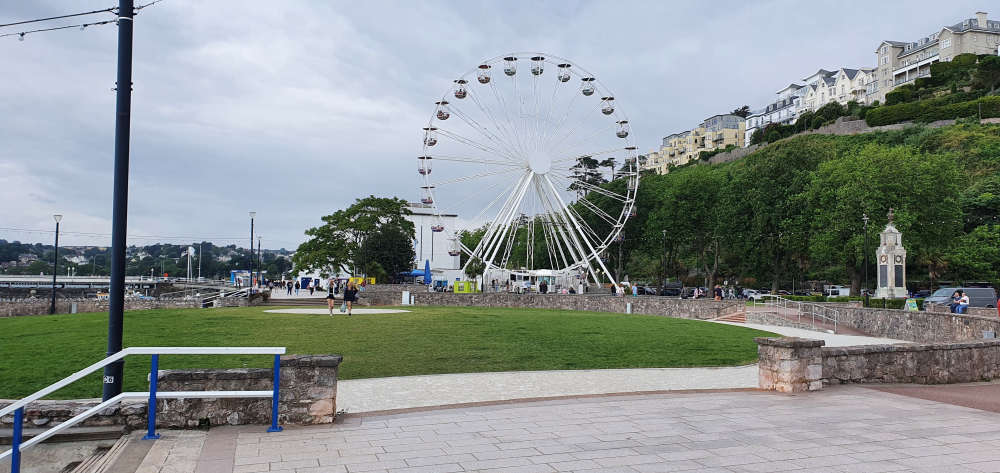 Torquay big wheel will ‘lift the spirits’ for years to come
Torquay big wheel will ‘lift the spirits’ for years to come
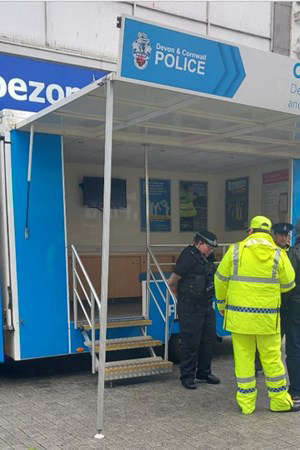 Mobile police station gives the public another way to share feedback on policing, Torquay
Mobile police station gives the public another way to share feedback on policing, Torquay
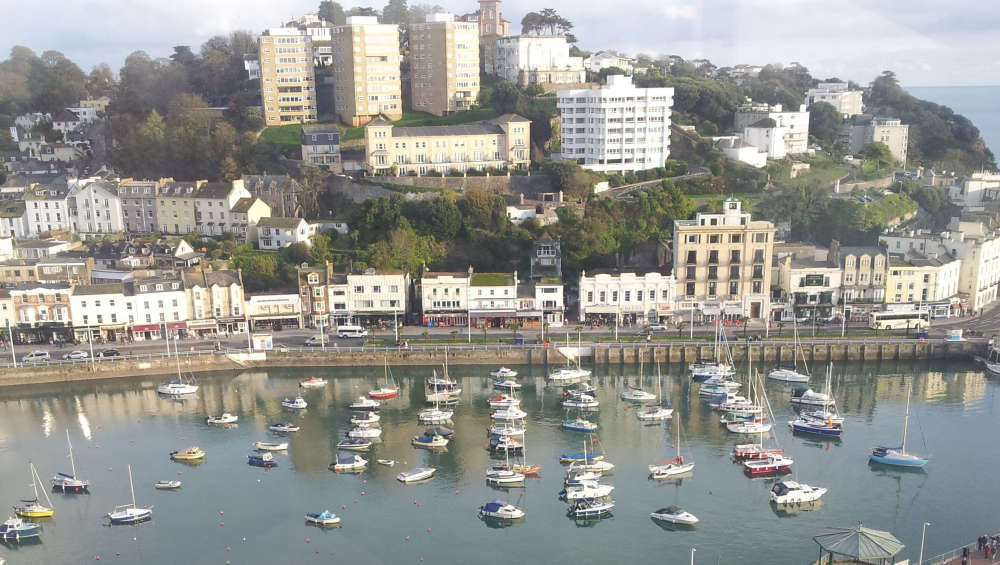 Enjoy Torquay’s harbourside this Easter with two days of FREE family-friendly activities
Enjoy Torquay’s harbourside this Easter with two days of FREE family-friendly activities
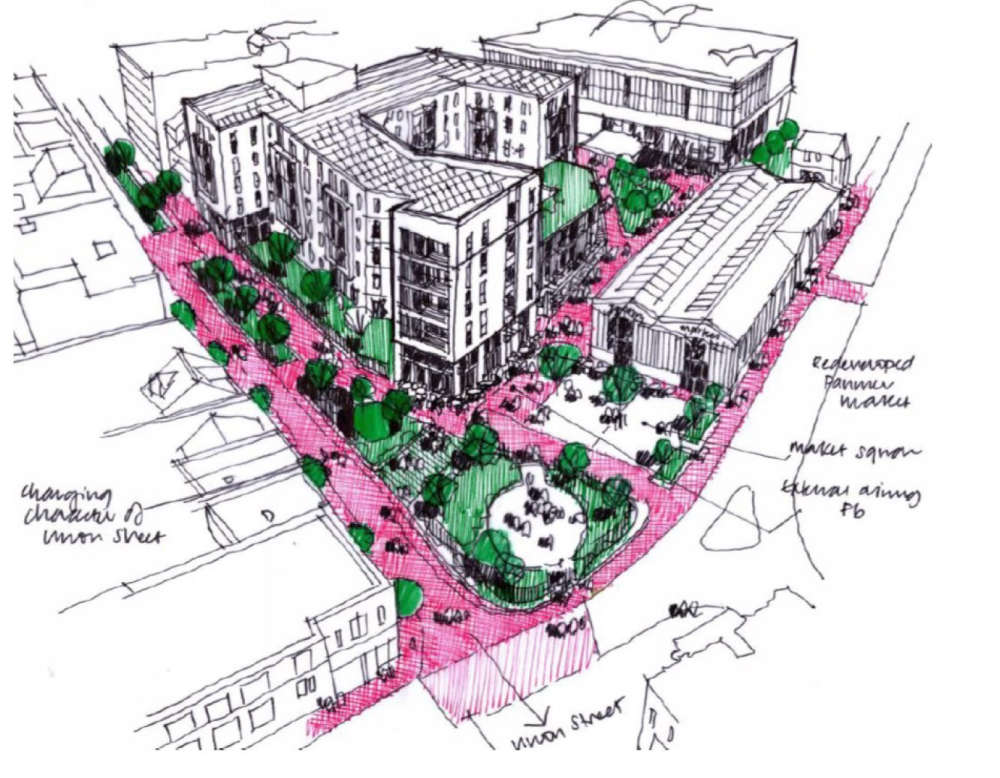 Decision soon on Torquay town centre redevelopment
Decision soon on Torquay town centre redevelopment









